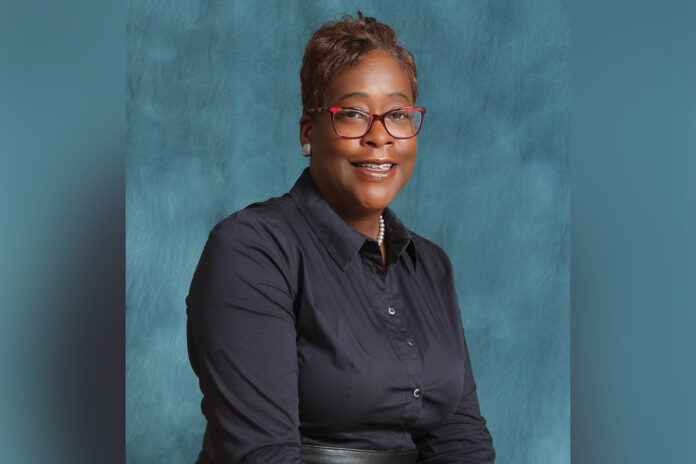Dr. Stephanie Thomas had been working as a training manager at the Atlanta Police Department for about a decade when she enrolled in a master’s program at Mercer University that would propel her career forward.
“What Mercer did for me was allow me to learn the broad spectrum of what falls under public safety leadership. I had an opportunity to study, identify my strengths and then apply it back on the job,” said Dr. Thomas, who earned her master’s in public safety leadership from the College of Professional Advancement in 2010.
In 2019, Dr. Thomas was named the first civilian director of the Atlanta Police Leadership Institute, a position she still holds today. With the International Association of Chiefs of Police, she developed a five-tier, leadership-focused curriculum aimed at producing leaders who can confidently and effectively manage challenges in the police environment.
Dr. Thomas will be a featured leader at the College of Professional Advancement’s virtual Leader-to-Leader Symposium from 11:30 a.m.-1 p.m. March 20. Kirk Barnes, speaker, author, co-founder and president of TransPharMed, also will be featured at the event. He and Dr. Thomas will discuss their leadership journeys and paths to success. Registration for the symposium is available online.
“Every individual has a quality of leadership within them. It’s just identifying that,” Dr. Thomas said.
The Atlanta Police Leadership Institute offers courses to all Atlanta Police Department personnel from recruits to the command staff. Courses also are available to members of the Atlanta Fire Rescue Department and the Atlanta Department of Corrections.
Dr. Thomas explained that all officers’ jobs involve influencing others, whether working the beat or driving on patrol.
“Having them acknowledge that it exists is the foundation. When you get them to believe in themselves, identifying their strengths, then it’s easy to develop,” she said.
Dr. Thomas works to ensure each lesson is innovative, creative and serves the department. Program participants develop a project for the police department and present it to command staff as part of their capstone. Most of the projects have gone on to be implemented in department, Dr. Thomas said.
“When the leaders are able to articulate where they see the department is going, and they can sit and have a moment, an opportunity to share that with the chief of police and his executive team, that’s powerful,” she said. “They now have ownership in this organization. It’s a proud moment.”
The pandemic and civil unrest in 2020 brought challenges to the Atlanta Police Department. The city experienced weeks of social justice protests, and while some were peaceful, officers often found themselves face-to-face with highly charged protestors. The police chief at the time resigned, and morale was low, according to an article Dr. Thomas wrote for Police Chief magazine, a publication of the International Association of Chiefs of Police.
As a result, the Atlanta Police Leadership Institute quickly had to adapt to changing needs. In-person classes became virtual, and courses began to focus more on officers’ wellbeing.
“We had to not hide but to aggressively move forward in providing mental health support, acknowledging officer wellness and leading in a time of crisis,” Dr. Thomas said in an interview with The Den. “It was really about what the department needed at the particular time.”
The professional development in leadership has shifted officers’ mindsets, she said.
“It has always been about the foundation of preventing crime, solving crime, responding to crime, but now it’s a little deeper. The mindset is now on officer wellness. It is on peer support. It is focusing on their social and emotional needs,” she said. “I make sure that they are learning more about their environment because if they don’t know the environment, they can’t really serve the environment. The professional development has gone beyond the influence of others. It’s really knowing others because the more they know, the more they can help.”








